Let the Children Play Together!
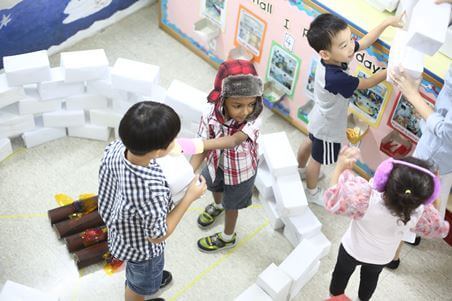

For children, playing is more than just a means of passing time -- it is also a way for them to learn about themselves, other people, and the world around them. And while it is beneficial for children to go through self-discovery in the course of playing alone, it is through social play that they learn how to interact with others and a host of other skills which include learning how to cooperate, take-turns, negotiate, problem-solve and resolve conflicts.
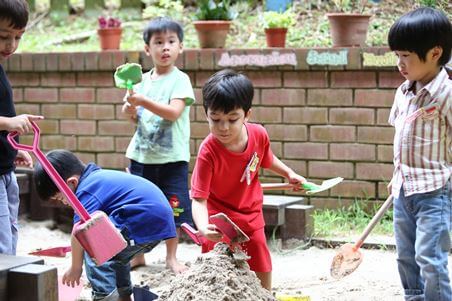
BENEFITS OF PLAY
"(Play dates) should start as young as possible. It should even be incorporated as part of the child's lifestyle," recommends Mrs Dianne Seet, ECDA Fellow and Principal of Ascension Kindergarten. "On top of physical benefits, play dates will help children better empathise with each other. Play dates enable children to mingle and practise all the dispositions and values that they would have been taught at schools. The opportunity to play with other children will also foster social interaction amongst young children. "There tends to be more adults than children in a family unit today. As such, we should not be surprised when a child doesn't know how to interact with other children," says Mrs Seet.
WHICH STAGE OF PLAY IS MY CHILD AT?
Parents should not be too alarmed if their toddler does not seem to be interacting with other children in group play situations. This is because children often display different play dynamics at different stages of their social play development. According to research, this includes:
EXPLORATORY PLAY - when a child interacts with things or persons in a seemingly random fashion
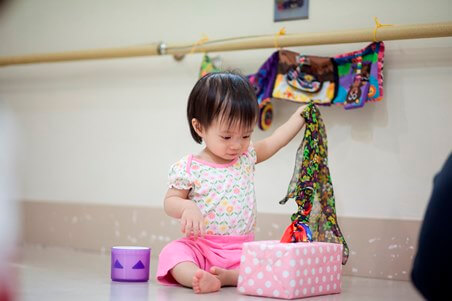
ONLOOKER PLAY - when they observe the actions of others playing
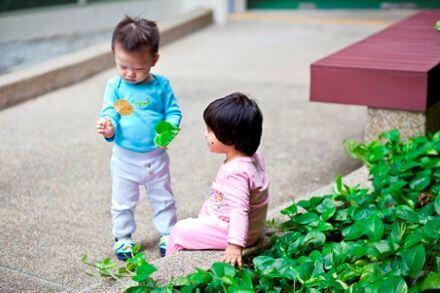
SOLITARY PLAY - when they play alone in the presence of other children
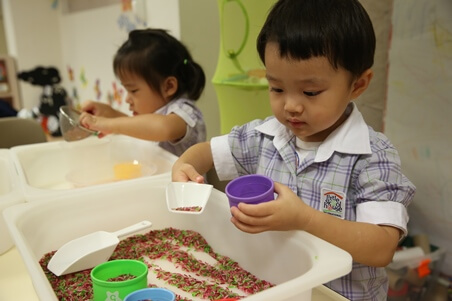
PARALLEL PLAY - such as when children play on the same playground equipment but with little or no social interaction
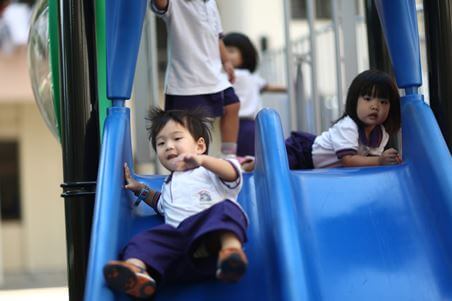
COOPERATIVE PLAY - when the child starts playing with other children, such as following the same rules and working towards a common goal during a game of football.
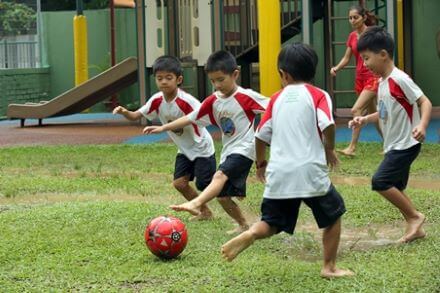
IMPORTANCE OF MULTI-AGE INTERACTION
Cooperative play is a complex process and a child would probably learn faster through emulating older children. This is why Mrs Seet strongly encourages play dates that involve children of differnet ages. "This allows for different roles to take place." She elaborates further, "For example, older children will be able to assist younger children in physical activities and perhaps even be role models as [older children] developmentally have the ability to do more."
However, Mrs Seet does highlight certain areas of attention when younger children are playing in the presence of or with older children. "If the older children are not able to self-regulate, adult supervision is necessary." This doesn't mean that you have to step in to discipline an older child in the group. Supervision would be more along the lines of explaining to the older child the consequences of the action of behaviour, says Mrs Seet.
But before you pick up your phone and start calling up friends with younger children to arrange play dates, bear in mind too that it is not just who your child is playing with that matters, but also where.
WHERE CAN WE PLAY?
"For a start, meeting at a neutral place would 'level the playing field' so to speak," shares Mrs Seet. "Young children may not posess the social ability to share their toys. If a play date is to be conducted in the home of one of the children, the child living in the house must first be told about sharing his or her toys with the other children.
However you don't have to go out of your way to get to suitable venues. "Any playground (is suitable for playdates,)" says Mrs Seet. This includes play areas at public housing estates and also within the premises of condominiums. Parents can also check out the vertical playgrounds at Bishan, where older children can assist younger children.
You may also like

From Cabin to Classroom: Journey of an Outstanding Early Childhood Educator
The PDP modules allowed me to get creative with lesson ideas and keep up with the ever-changing Early Childhood sector.

Ms Farhana Binte Mohamed Hassan
Early Years Educator - PCF Sparkletots @ Pioneer Block 987D (CC)

More Than Just a Place for Food
Young children are highly inquisitive, and learn most effectively with activities that allow exploration and experimentation.

Kinderland @ Yio Chu Kang

Little Fingers Create Great Art - A Community Project by Kinderland and Skool4kidz
I believe this collaborative effort is a very meaningful contribution to the SG50 celebrations.

Kinderland and Skool4Kidz